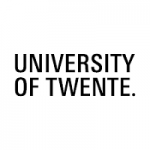项目介绍
In 2015, the LIGO–Virgo collaboration achieved the first detection of high-frequency gravitational radiation, confirming Einstein’s 1916 results, and establishing the existence of binaries of stellar-mass black holes.
Project background
The next frontier – the observation of very-low-frequency gravitational waves – was reached in 2023 by pulsar-timing-array programs (NANOGrav and its international counterparts), which measure these waves by monitoring the regular emission of radio pulsars. In the mid 2030s, the space mission LISA will begin to observe thousands of low-frequency gravitational-wave sources, including ultracompact stellar-remnant binaries in the Milky Way, and the mergers of massive-black- ole binaries across cosmic time. The newly formed Gravitational Physics Research Group at ETH Zurich leads the implementation of the Swiss LISA Data Center, and participates in the science activities of the NANOGrav pulsar-timing consortium.
Job description
In this PhD project, you will work within the Gravitational Physics group at ETH Zurich and contribute to the formulation, development, and testing of novel algorithms and mathematical techniques for the LISA global-fit problem (the joint detection and characterization of thousands of overlapping gravitational-wave signals), and for the compilation and integration of global-fit products into a catalog of detected sources. You will experiment with a range of computational and mathematical techniques, including neural-network-based inference, information-theoretical approaches, and AI-based acceleration for sampling, likelihoods, and waveforms. You will interact with researchers and engineers in the Swiss LISA Data Center and in LISA Data Centers across Europe, in the ETH AI Center, and in ETH Zurich | Space. Your results will inform the implementation of data-analysis pipelines for LISA, and they will help deliver the scientific results of the mission.
Profile
- have a MSc degree in physics or similar discipline by the starting date
- enjoy theoretical physics, applied mathematics, and problem solving
- be a committed team player with good communication skills
- be proficient in spoken and written English
- have excellent computer and programming skills
PhD position “Novel approaches to the LISA global-fit and catalog problems”
100%, Zurich, fixed-term
In 2015, the LIGO–Virgo collaboration achieved the first detection of high-frequency gravitational radiation, confirming Einstein’s 1916 results, and establishing the existence of binaries of stellar-mass black holes.
Project background
The next frontier – the observation of very-low-frequency gravitational waves – was reached in 2023 by pulsar-timing-array programs (NANOGrav and its international counterparts), which measure these waves by monitoring the regular emission of radio pulsars. In the mid 2030s, the space mission LISA will begin to observe thousands of low-frequency gravitational-wave sources, including ultracompact stellar-remnant binaries in the Milky Way, and the mergers of massive-black- ole binaries across cosmic time. The newly formed Gravitational Physics Research Group at ETH Zurich leads the implementation of the Swiss LISA Data Center, and participates in the science activities of the NANOGrav pulsar-timing consortium.
Job description
In this PhD project, you will work within the Gravitational Physics group at ETH Zurich and contribute to the formulation, development, and testing of novel algorithms and mathematical techniques for the LISA global-fit problem (the joint detection and characterization of thousands of overlapping gravitational-wave signals), and for the compilation and integration of global-fit products into a catalog of detected sources. You will experiment with a range of computational and mathematical techniques, including neural-network-based inference, information-theoretical approaches, and AI-based acceleration for sampling, likelihoods, and waveforms. You will interact with researchers and engineers in the Swiss LISA Data Center and in LISA Data Centers across Europe, in the ETH AI Center, and in ETH Zurich | Space. Your results will inform the implementation of data-analysis pipelines for LISA, and they will help deliver the scientific results of the mission.
Profile
- have a MSc degree in physics or similar discipline by the starting date
- enjoy theoretical physics, applied mathematics, and problem solving
- be a committed team player with good communication skills
- be proficient in spoken and written English
- have excellent computer and programming skills
Workplace
We offer
We offer a dynamic, challenging role within an inspiring environment at a world-renowned university. Career development is central to our culture, and we are committed to supporting your professional growth. PhD students at ETH Zurich earn competitive salaries and are eligible for both social security and retirement benefits (the current annual gross salary starts at CHF 60’800 in the first year and goes up to CHF 67’500 in the third and fourth year). PhD positions are funded for four years. Funding for attending international conferences is available and potential publication costs will be covered.
ETH Zurich is regularly rated as the best university in continental Europe and Zurich itself is one of the most livable and attractive cities worldwide. Many people at ETH Zurich and within our research group have an international background. English is our common language.chevron_rightWorking, teaching and research at ETH Zurich
We value diversity
In line with our values, ETH Zurich encourages an inclusive culture. We promote equality of opportunity, value diversity and nurture a working and learning environment in which the rights and dignity of all our staff and students are respected. Visit our Equal Opportunities and Diversity website to find out how we ensure a fair and open environment that allows everyone to grow and flourish.
Curious? So are we.
Complete applications received by December 15, 2024 will receive full consideration. The position is open to candidates from all countries. The starting date is negotiable, and could be as soon as January 2025.
We look forward to receiving your application, as a single PDF, including:
- curriculum vitae
- a brief motivational statement of research interests and experience (1 page max)
- contact information for at least two referees
- MSc degree certificate (if already available)
- a list of all university courses taken and transcripts of grades obtained
Please note that we exclusively accept applications submitted through our online application portal. Applications via email or postal services will not be considered.
Questions regarding the position (but no applications) should be directed to Prof. Dr. Michele Vallisneri, e-mail: mvallisneri@ethz.ch.
联系方式
电话: +41 44 632 11 11相关项目推荐
KD博士实时收录全球顶尖院校的博士项目,总有一个项目等着你!






